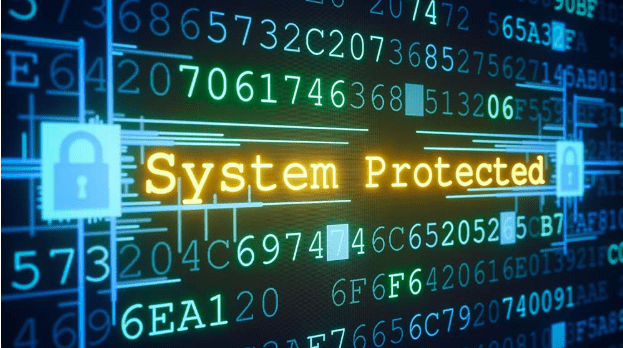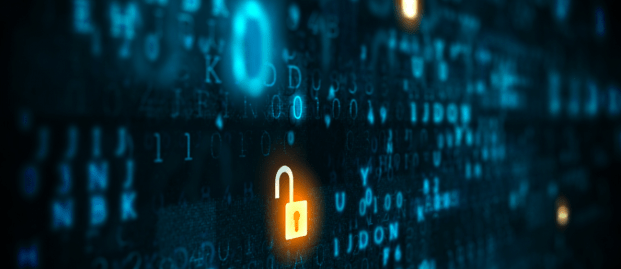
What if Cybersecurity Vanished?
Where there is a crime, there is caution and safeguarding. The existence of Cybercrime in this world has lead to the birth of Cybersecurity. As cybercrime continues to become a part of our lives, we try harder to adopt cybersecurity. However, we love to be social – even if that social life could turn our world inside-out. You see, our world revolves around the internet, be it for interaction, transactions or storing private information.
Nevertheless, nothing is safe. Our money, our bank details, our privacy – nothing.
It may or may not shock you, but our world could very well “come to an end” if cybersecurity were to vanish. The vanishing would have a crippling effect on us due to our daily reliance on the internet. Let’s try and understand more about the importance of cybersecurity.
What is Cybersecurity?
Cybersecurity is also known as IT security. It refers to a technique of protecting networks, computers, programs, and data from activities aimed at exploitation, or unauthorized access. It helps protect information from being stolen and has an understanding of potential threats, like viruses and malicious code.
What is Cybercrime?
Cybercrime is the attack for which cybersecurity has been implemented. Cybercrime can cause up to $500 billion in losses per year. These cyber-attacks cause huge damage to individuals, companies and governments.
Remember the WannaCry attack back in 2017? The ransomware recorded itself on nearly 300,000 computers and other digital software in over 150 countries. The WannaCry ransomware attack was one of the largest cyber attacks. Among many countries, Russia and India were some of the worst affected. The computers were infected and the data on the hard drives encrypted. WannaCry demanded payment ranging between $300 to $600 to decrypt the data.
Cybercrime is a huge topic, not just because of the rise in cybersecurity attacks but because of the progressive destructiveness of these attacks.
The Consequences of Cybercrime
Cybercrime is as harmful to the government as it is to corporates and individuals. In May 2017, President Trump signed a governing order with the focus on advancing cybersecurity in the U.S. – particularly for the country’s infrastructure and federal IT networks. Thus, welcome to the Cyberage. Where in today’s world, the internet and computers have a substantial impact on our way of living, social life and the way we conduct business. With internet growth, network security has become a primary concern. This rapid extension of cybercrime has left us with some depressing consequences, such as:
Cyber-Theft
This is when communication systems are used to steal information in electronic format. Example: Hackers steal system information from banks then transfer the money into their bank accounts. Huge amounts of money can be swindled this way, causing trouble. Credit card fraud is another common issue. Cyber theft is the easiest to execute, and of course, the most reported cybercrime. However, most companies and banks won’t announce they were victims for fear of losing their clients.
Hacking
There’s a huge penalty for crimes like hacking. It could be a fine up to $20,000 or 20 years in prison – or maybe both. This all depends on the level of destruction that took place. Today hacking is considered to be the chief cybercrime. Hackers take advantage of the loopholes in operating systems, destroying significant data and stealing critical information from the victim’s device. Hackers also control what you do on your computer and can import files onto your system. Many applications can be installed on your system without you having a single clue. These programs can also be used for stealing personal information, account passwords and credit/debit card information. A company’s critical data can also be hacked to gain information about companies plans and statements.
Viruses & Worms
We all know what viruses are. Therefore, we’ve installed different kinds of anti-viruses to defend against them. These viruses and worms are a big-time danger to individuals and small companies; they spread from one computer to another within seconds. There are worms that exploit weaknesses in operating systems. The Chernobyl and Melissa viruses are some examples that upset many lives.
Back in January 2004, the Mydoom worm affected about a quarter-million computers in one day. Having caused financial damage of about $38.5 billion, it’s deemed the most expensive virus in the history of cybersecurity. The Mydoom worm exceeded all previous records and became the fastest-spreading email worm ever. The virus’s origins are believed to be in Russia, but its creator was never discovered. When the Melissa virus arrived in March 1999, its destructive power forced Microsoft to shut down their email systems until the virus could be contained. Melissa would appear in emails with the subject line, “Important Message From…”. Sounding genuine enough, it forced users to click on the email.
Since then, we’ve learned that cyber villains can attack us anytime, anywhere. However, we should know how cybersecurity can save us from these threats.
Cybersecurity is Essential for Present Day Society
Despite lots of government efforts and specialized inputs, cybercrime is not ready to quit. With continuous technical advances, new dangers are continually surfacing.
Cybersecurity is about building trust and safety within the IT world.
The rise in cyber threats includes the fraudulent practices of:
- Sending emails
- Scams
- Data theft
- Exploiting online vulnerabilities
An unprotected computer connected to the internet can be hacked in seconds, with thousands of infected web pages. Yet new ways of cyber attacks are continuously introduced.
Cybersecurity is one of the most significant issues. Sure criminals target computer networks to spread damage, but there are some precautions companies can take to minimize their losses.
The increase in cybersecurity attacks on government, individuals and organizations puts stress on IT security professionals. To defend against these threats in today’s world, cybersecurity specialist jobs are in high demand. If you think about it, cyberattacks are sort of similar to public health. For instance – the flu. People who are already infected are more likely to infect others. Moreover, the same goes for cybersecurity. It’s clear that infected devices will have a way of destroying other devices. Therefore, cybersecurity is not just about protecting you; it’s about protecting all of us.
Realistically, social media is the easiest way to get attacked. If all your online accounts are unsafe, it makes it simple for others to use your accounts. This is when social engineering attacks are executed to steal data or money.
Cybersecurity is Essential for all of Us.

How You Can Protect Yourself from Cyber Attacks
- Confidentiality: Only share private information with relevant users.
- Sincerity: Information should hold integrity and remain unmodified.
- Availability: Information should be available to those who need it.
Suggested Measures from The Department of Homeland Security
- Don’t share private data over the phone or through email. (Unless you know exactly who you are giving it to.)
- Keep all of your browsers and antivirus software updated.
- Pick a password that is tough to crack. (Common passwords like “1234” are easily stolen.)
- Create strong passwords. Don’t share with anyone & never use the same password for multiple accounts.
- The safest practice: Go to the company’s website and log on directly. (Don’t click the links sent via email.)
- If you can’t protect everything, protect what’s important.
So What if Cybersecurity Vanished?
Cybercriminals are becoming more organized. Therefore, companies are becoming increasingly alert to cyber threats. If the world doesn’t adopt cybersecurity, continued cyberattacks could lead to huge financial and privacy loss. Society has become dependent on computers and internet-connected devices, so the online world absolutely needs cybersecurity.
Cybersecurity is not only a concern for the IT departments and security groups. Rather it has become one of the primary concerns of the government.
A cyberattack can’t destroy the world, but it can initiate by overcoming geopolitical stability. It has the power to damage national associations and weaken strong democracies. Other than nuclear weapons, hacking has become the most destabilizing tool in geopolitics. These cyberattacks have sent threats to the world by various means. But, with these cyberattacks in power, cybersecurity is the only one to defeat it.
As it’s been said, if we can’t prevent something, we should protect ourselves. So security assurance must be the major goal in fighting against these cybercrimes.
Did you know?
There is about $400 million – $500 million in losses per year. Multiple attacks have included:
- Stealing government-private information
- Theft of public welfare information
- Stealing corporate information
- Theft of profits
- Theft of individual bank accounts
If cybersecurity disappeared, our lives would stop working efficiently. Therefore, “our world” as we know it, would come to an end.
Share This Post
Categories



